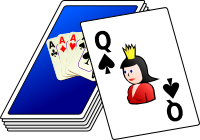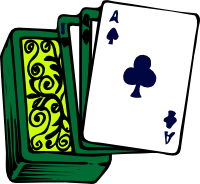Associations to the word «Pack»
Noun
- Suitcase
- Booster
- Bag
- Packing
- Mule
- Saddle
- Punch
- Grub
- Canteen
- Ration
- Trunk
- Sled
- Bundle
- Crate
- Luggage
- Gear
- Baggage
- Basket
- Blanket
- Belonging
- Sledge
- Utensil
- Battery
- Jar
- Meat
- Pouch
- Clothes
- Container
- Kit
- Cart
- Wagon
- Sack
- Carcass
- Tent
- Ammunition
- Stuff
- Pony
- Bale
- Bottle
- Vest
- Harness
- Ice
- Wrapping
- Dug
- Load
- Horseback
- Tobacco
- Briefcase
- Xp
- Combo
- Hound
- Cigarette
- Drawer
- Shuffle
- Cloak
- Wolf
- Brat
- Lithium
- Strap
- Blister
- Howitzer
- Werewolf
- Card
- Rat
- Sinatra
- Valuable
- Pallet
- Hartford
- Carton
- Expansion
- Cub
- Howling
- Lunch
- Spectator
- Canister
- Gunpowder
Pictures for the word «Pack»
Wiktionary
PACK, noun. A bundle made up and prepared to be carried; especially, a bundle to be carried on the back; a load for an animal; a bale, as of goods.
PACK, noun. A number or quantity equal to the contents of a pack; hence, a multitude; a burden.
PACK, noun. A number or quantity of connected or similar things; a collective.
PACK, noun. A full set of playing cards; also, the assortment used in a particular game; as, a euchre pack.
PACK, noun. A number of hounds or dogs, hunting or kept together.
PACK, noun. A number of persons associated or leagued in a bad design or practice; a gang;
PACK, noun. A group of Cub Scouts.
PACK, noun. A shook of cask staves.
PACK, noun. A bundle of sheet-iron plates for rolling simultaneously.
PACK, noun. A large area of floating pieces of ice driven together more or less closely.
PACK, noun. (medicine) An envelope, or wrapping, of sheets used in hydropathic practice, called dry pack, wet pack, cold pack, etc., according to the method of treatment.
PACK, noun. (slang): A loose, lewd, or worthless person.
PACK, noun. (snooker) (pool) A tight group of object balls in cue sports. Usually the reds in snooker.
PACK, noun. (rugby) The team on the field.
PACK, verb. (physical) To put or bring things together in a limited or confined space, especially for storage or transport.
PACK, verb. (transitive) To make a pack of; to arrange closely and securely in a pack; hence, to place and arrange compactly as in a pack; to press into close order or narrow compass.
PACK, verb. (transitive) To fill in the manner of a pack, that is, compactly and securely, as for transportation; hence, to fill closely or to repletion; to stow away within; to cause to be full; to crowd into.
PACK, verb. (transitive) To envelop in a wet or dry sheet, within numerous coverings.
PACK, verb. (transitive) To render impervious, as by filling or surrounding with suitable material, or to fit or adjust so as to move without giving passage to air, water, or steam.
PACK, verb. (intransitive) To make up packs, bales, or bundles; to stow articles securely for transportation.
PACK, verb. (intransitive) To admit of stowage, or of making up for transportation or storage; to become compressed or to settle together, so as to form a compact mass.
PACK, verb. (intransitive) To gather in flocks or schools.
PACK, verb. (social) To cheat, to arrange matters unfairly.
PACK, verb. (transitive) (card games) To sort and arrange (the cards) in a pack so as to secure the game unfairly.
PACK, verb. (transitive) To bring together or make up unfairly and fraudulently, in order to secure a certain result.
PACK, verb. (transitive) To contrive unfairly or fraudulently; to plot.
PACK, verb. (intransitive) To unite in bad measures; to confederate for ill purposes; to join in collusion.
PACK, verb. (transitive) To load with a pack; hence, to load; to encumber.
PACK, verb. To move, send or carry.
PACK, verb. (transitive) To cause to go; to send away with baggage or belongings; especially, to send away peremptorily or suddenly; – sometimes with off. See pack off.
PACK, verb. (transitive) (US) (Western US) To transport in a pack, or in the manner of a pack (i. e., on the backs of men or animals).
PACK, verb. (intransitive) To depart in haste; – generally with off or away.
PACK, verb. (transitive) (slang) To carry weapons, especially firearms, on one's person.
PACK, verb. (transitive) (sports) (slang) To block a shot, especially in basketball.
PACK, verb. (intransitive) (LGBT slang) (of a drag king, transman, etc.) To wear a simulated penis inside one’s trousers for better verisimilitude.
PACK A PUNCH, verb. (idiomatic) To be capable of throwing a strong punch.
PACK A PUNCH, verb. (idiomatic) To be capable of having a swift and powerful effect.
PACK ANIMAL, noun. A domesticated animal used to carry heavy items.
PACK ANIMAL, noun. A wild animal that lives and hunts in packs
PACK ANIMALS, noun. Plural of pack animal
PACK AWAY, verb. To store away, place out of the way, or stash, especially for the longer term
PACK AWAY, verb. To eat a great deal (informal)
PACK FUDGE, verb. (idiomatic) (slang) to perform homosexual anal sex.
PACK HEAT, verb. (idiomatic) To carry one or more handguns on one's person, especially in a concealed manner.
PACK HORSE, noun. A horse used for carrying luggage.
PACK HORSES, noun. Plural of pack horse
PACK ICE, noun. A large consolidated mass of floating sea ice.
PACK IN, verb. (idiomatic) (transitive) to give up, to quit
PACK IN, verb. (idiomatic) to include (especially of a large amount)
PACK IN, verb. To transport to base camp, especially by backpack.
PACK IN, verb. (American football) This term needs a definition. Please help out and add a definition, then remove the text {{safesubst:.
PACK JOURNALISM, noun. (media) A tendency of reporting to become homogeneous due to the reporters' habit of relying on one another for news tips or being dependent on a single source for information.
PACK MENTALITY, noun. The tendency for groups of individuals to act together without planned direction.
PACK OF LIES, noun. (idiom) Total lies, complete untruth
PACK OFF, verb. (transitive) To send away, with belongings, for a long time.
PACK ON, verb. (transitive) To add (fat, muscle, etc.) so as to increase mass or bulk.
PACK ON POUNDS, verb. Alternative form of pack on the pounds
PACK ON THE POUNDS, verb. (idiomatic) To gain weight, especially as a result of vigorous or excessive eating.
PACK OUT, verb. (transitive) (usually used in the passive) To fill with spectators
PACK RAT, noun. Any of several small North American rodents, of the genus Neotoma, that have bushy tails.
PACK RAT, noun. One who collects or hoards, especially unnecessary things.
PACK TRAIN, noun. (dated) A procession of beasts of burden, such as horses or mules, laden with freight.
PACK UP, verb. To give in.
PACK UP, verb. To clear away.
PACK UP, verb. To put back together.
PACK UP, verb. To move one's residence.
PACK UP, verb. To prepare for shipping, as a gift.
PACK UP, verb. (of things) To put into bags to prepare to move.
PACK UP, verb. (of a machine) To break, to cease to function.
Dictionary definition
PACK, noun. A large indefinite number; "a battalion of ants"; "a multitude of TV antennas"; "a plurality of religions".
PACK, noun. A complete collection of similar things.
PACK, noun. A convenient package or parcel (as of cigarettes or film).
PACK, noun. An association of criminals; "police tried to break up the gang"; "a pack of thieves".
PACK, noun. An exclusive circle of people with a common purpose.
PACK, noun. A group of hunting animals.
PACK, noun. A cream that cleanses and tones the skin.
PACK, noun. A sheet or blanket (either dry or wet) to wrap around the body for its therapeutic effect.
PACK, noun. A bundle (especially one carried on the back).
PACK, verb. Arrange in a container; "pack the books into the boxes".
PACK, verb. Fill to capacity; "This singer always packs the concert halls"; "The murder trial packed the court house".
PACK, verb. Compress into a wad; "wad paper into the box".
PACK, verb. Carry, as on one's back; "Pack your tents to the top of the mountain".
PACK, verb. Set up a committee or legislative body with one's own supporters so as to influence the outcome; "pack a jury".
PACK, verb. Have with oneself; have on one's person; "She always takes an umbrella"; "I always carry money"; "She packs a gun when she goes into the mountains".
PACK, verb. Press tightly together or cram; "The crowd packed the auditorium".
PACK, verb. Hike with a backpack; "Every summer they are backpacking in the Rockies".
PACK, verb. Press down tightly; "tamp the coffee grinds in the container to make espresso".
PACK, verb. Seal with packing; "pack the faucet".
PACK, verb. Have the property of being packable or of compacting easily; "This powder compacts easily"; "Such odd-shaped items do not pack well".
PACK, verb. Load with a pack.
PACK, verb. Treat the body or any part of it by wrapping it, as with blankets or sheets, and applying compresses to it, or stuffing it to provide cover, containment, or therapy, or to absorb blood; "The nurse packed gauze in the wound"; "You had better pack your swollen ankle with ice".
Wise words
Be generous with kindly words, especially about those who
are absent.



